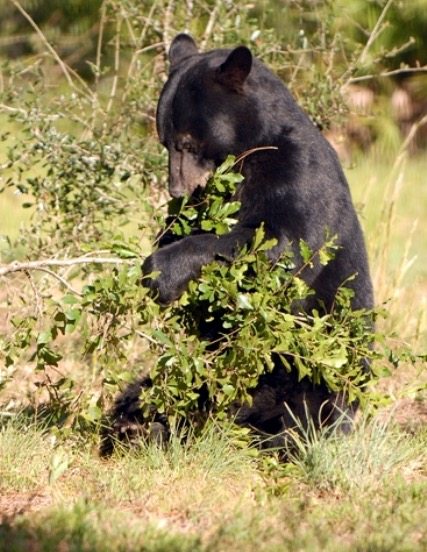At Forest Animal Rescue, we are excited about the opportunity to expand one of our oldest and most favorite programs.
Since our inception, 25 years ago, we have provided hundreds of native animals with protected wild habitat for safe release after rehabilitation.
We have worked with wildlife rehabilitators from around the state, assisting with the release of animals that were unable to be returned to the location where they were orphaned or injured. There is nothing more rewarding than seeing a wild animal, restored to proper health, happily disappear into the wilderness where it belongs.
We have recently acquired another piece of property in the Ocala, National Forest, and we are in the process of restoring the habitat to provide yet another protected site for the safe release of small native animals and deer.
Thankfully, with the recent passage of the Big Cat Public Safety Act (BCPSA), the number of large carnivores needing sanctuary homes has begun to dwindle. As a result, several sanctuaries have begun to consolidate resources. We, too, are adjusting our “lifetime care” sanctuary program to allow us to focus on the smaller species we care for.
One major benefit to being part of a large network of true sanctuaries is the ability to guarantee lifetime care to all of the non-releasable animals we have rescued, even as we make this shift to make more efficient use of resources.
We have chosen to transfer three tigers, Natasha, Eva, and Juanita, along with three black bears, Cody, Oatmeal, and Elizabeth Rose, to Keepers of the Wild, another wonderful, accredited sanctuary, located on 175 lush acres in Arizona.
Keepers of the Wild has graciously agreed to continue our promise of high-quality lifetime care at their sanctuary. Since they already have many big cats and bears, they are more than qualified to do exactly that.
Lions, Tigers, and Bears, another fellow sanctuary in California, has offered to transport the six large animals cross-country in their beautiful animal transport rig. It’s wonderful when such teamwork comes together to benefit the animals.
This will allow Forest Animal Rescue to focus our resources on the smaller species at the sanctuary, rehabilitation of wild bear cubs (to be returned to state biologists for release on government land), and the safe release of small native animals and deer onto our protected land.

One exception to this large carnivore move – “B-Bear!” We rescued this big black bear back in 2006. He is now geriatric, and with his orthopedic issues, we have decided that moving across the country would be too hard on him. Our other bears have started to push him around in his old age, so we think he will enjoy some peaceful retirement time with all our attention and his 4-acre habitat all to himself.
We welcome this opportunity to strengthen our focus and make the best use of our resources. We look forward to sharing our progress with you as we go! Thank you for your ongoing support!
